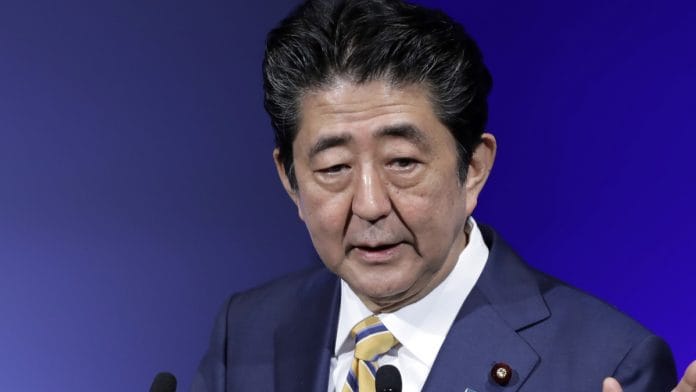Tokyo: China’s projection of its military might into Asian waters and North Korea’s modernization of its ballistic-missile arsenal pose risks to Japanese and regional security, the Japanese Ministry of Defense said.
In its annual white paper released Tuesday, the ministry accused China of “relentlessly’ pushing its way toward uninhabited East China Sea islands claimed by the two countries, saying it was becoming “a matter of grave concern.” The ministry also accused China of spreading disinformation about Covid-19.
The Defense of Japan white paper comes after fresh ripples between Japan and its sole military ally, the U.S., following Tokyo’s decision last month to drop deployment plans for a $5 billion Lockheed Martin Corp. missile-defense system. The Trump administration has sought more money from Japan and other countries that host U.S. troops.
Despite those hiccups, the U.S. has still found Japanese Prime Minister Shinzo Abe to be one of the staunchest supporters of President Donald Trump’s security policies, including those for China and North Korea. Abe has spent much of his almost eight-year tenure trying to repair ties with China while maintaining Japan’s postwar alliance with the U.S.
“China is steadily increasing its capabilities to conduct operations in more distant seas,” the yearly defense paper said. The paper compiled over several months reaffirmed Japan’s position on the South China Sea, where it said Beijing was pushing forward with militarization and “continuing unilateral attempts to change the status quo by coercion to create a fait accompli.”
The Japanese report follows a Pentagon assessment that determined China to be advancing military and territorial footholds in the South China Sea. On Monday, the Trump administration rejected China’s expansive maritime claims in that water body, reversing a previous policy of not taking sides in such disputes.
“We are making clear: Beijing’s claims to offshore resources across most of the South China Sea are completely unlawful, as is its campaign of bullying to control them,” U.S. Secretary of State Michael Pompeo said. “The world will not allow Beijing to treat the South China Sea as its maritime empire.”
U.S. Protests
Japan reiterated that it believed China could use its global Belt and Road infrastructure initiative to push its People’s Liberation Army into the Indian and Pacific Ocean regions.
The U.S. earlier this month sent the USS Ronald Reagan and USS Nimitz aircraft carriers to the South China Sea for military exercises as China held its own drills in the area. Beijing’s moves have drawn protests from Washington amid worsening relations between the world’s two biggest economies.
Japan and Australia have also jointly criticized China’s militarization of the disputed waters as they face souring relations with their largest trading partner.
Ties between China and Japan deteriorated to their worst point in decades after Japan purchased part of a disputed island chain from a private owner in 2012. Relations slowly returned to a relatively even keel, but coast guard and military vessels from both countries continue to follow one another around the islands, known as the Senkakus in Japan and the Diaoyus in China.
Japan was also worried about a series of new, solid-fuel ballistic missiles that North Korea began testing last year. Japan already believes that Kim Jong Un’s regime can miniaturize a nuclear warhead to place on a missile, and that the new series of rockets are designed to avoid defense systems.
Kim has rolled out new solid-fuel ballistic missiles that are easier to move, hide and fire than many liquid-fuel versions. These include the nuclear-capable, hypersonic KN-23 missiles that can strike all of South Korea — and perhaps even parts of Japan.
“These enhancements in its capabilities make early detection of the signs of a launch and the interceptions of missiles more difficult,” the paper said.
Japan abandoned the U.S.-backed Aegis Ashore ballistic-missile defense program after a backlash among residents where two batteries were supposed to be based. Plans to introduce the Lockheed interceptors, which helped fuel a record $47 billion defense budget for 2019, quickly ran into public hostility, particularly after a series of official gaffes. The purchase had followed pressure from Trump to step up defense purchases back in 2017.-Bloomberg
Also read: US raises pitch against China, slams its claims to South China Sea as unlawful & bullying






